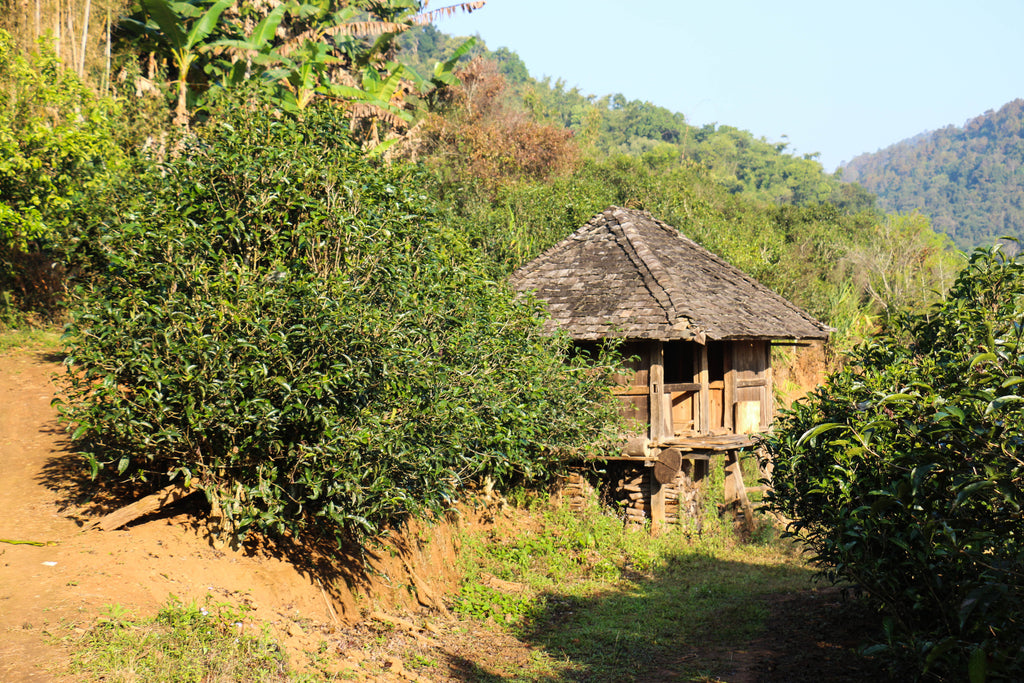Free worldwide shipping for orders over $30
$60 USD
Spring 2025, natural tea gardens from Meng Noy village
Classic Menghai daily drinker
Will deliver caffeine and a basic Huigan
This is a more basic version of what is made in Bulang Shan. The plantations are about thirty years old, no pesticides are sprayed. The taste is quite basic but does the job for a quick session. It has a balanced Southern Menghai profile with medium bitterness and astringency, fast Huigan and a juicy mouthfeel.
Meng Noy is is located on the Eastern part of the Bulang area.

Like all of the Bulang area village, this one has two names: Weidong and Meng Noy. The first one is the Han Chinese name that's written on the maps, and the second one is the Dai name that people in the area will use more commonly.
Meng Noy was founded 30 years ago by Hani villagers from Lao Banzhang. Lao Banzhang has no access to large amounts of water, which means you can't etablish paddy fields and have to grow rice uphill; this is much harder work.
This village is located at the intersection of two streams, making rice cultivation much easier and efficient. At the time, nobody would think that the ancient tea gardens of Lao Banzhang would ever have any value, the villagers packed their stuff and moved, forsaking their land in Lao Banzhang for better horizons.

The village, recently reconstructed, is established on flat land surrounded by hills. The landscape organization is concentric. You have the village at the core, rice paddies on the first ring, and tea gardens hung on steep hills as the second ring.
There are no ancient tea gardens in Meng Noy, but some tea gardens were established earlier than others. The villagers moved to the area 30 years ago, and they planted tea around the old village, which was initially built on a hillside (it was moved down the plain because of landslide concerns).

The bulk of the plantations were built in the early 2000s in the wake of the pu-erh rush. There are differences in garden design and quality between these gardens. The older ones look more messy, they are not organized in rows and are allowed to grow taller than their young counterparts. We chose the best quality available.

The tea production is supervised by Yang Hai Mei, it is all handmade.
If you are exploring the world of Pu-erh tea, Bulang Shan is a must-go terroir, it is well known for solid aging and overall strength.
